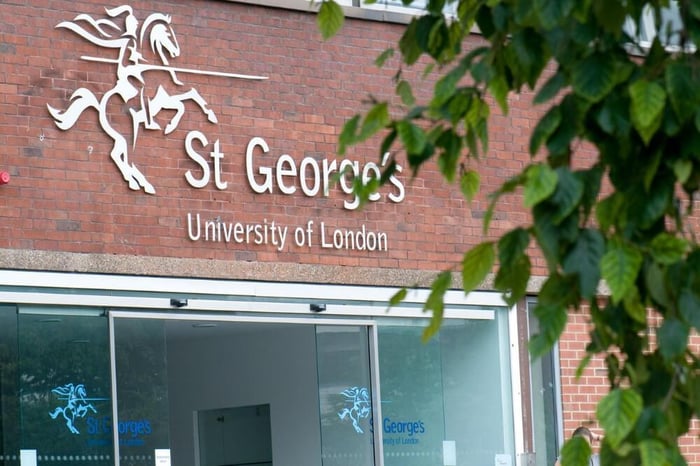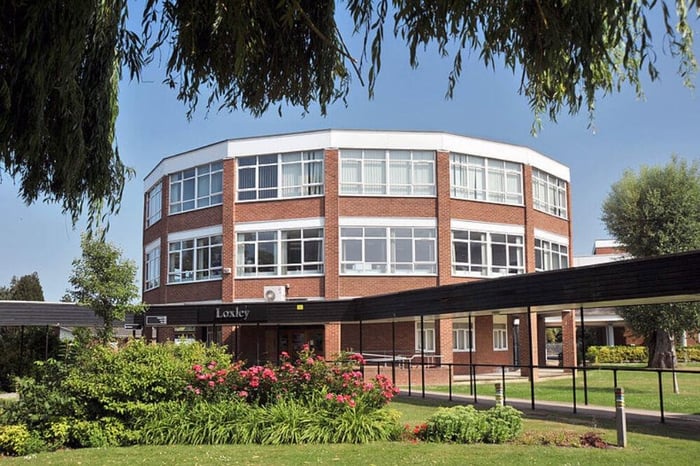
St George’s Medical School Interview Guide
St George’s University of London medical school (SGUL) has a history dating back to 1733. It is one of five new medical schools in London. It was the second institution to offer training for doctors in England, following the University of Oxford.
It is now based in Tooting, South London and is co-located with St George’s hospital. Students are allowed to apply with predicted grades of AAA at A-level and with a UCAT score of 500 or above in each section. There is also a minimum overall score that must be achieved in order to be considered for an interview, which was 2590 for 2018 entry.
1. ABOUT YOUR ST GEORGE'S MEDICINE INTERVIEW
Students who meet the required criteria will then be invited to interview following analysis of their personal statement, experience in clinical practice and other relevant work experience. The interview consists of multiple mini interviews. There are traditional questions, as well as some tasks that applicants are required to complete. There are 8 stations, each lasting 5 minutes. MMI is a better predictor of academic performance and suitability as a doctor than traditional panel interviews. The MMI format aims to assess:
- Academic ability and intellect - obviously all interviewees will have the predicted grades required, but St George’s will be looking for students who can engage with the course material. They may watch how you utilise your knowledge to approach a problem.
- Empathy - you may be asked to break distressing news to a patient or respond to an ethical dilemma.
- Initiative and resilience - being a doctor often requires thinking on your feet and acting quickly. An example station could involve you having to deal with a stressful situation, such as being separated from a friend.
- Communication skills - it is crucial for a doctor to be able to engage and interact with patients in a professional manner.
- Organisation and problem solving - doctors and medical students alike have a very busy timetable. It is important that the interviewer sees evidence of your ability to manage this.
- Teamwork - they will want to hear examples of when you’ve been a team player, as a doctor has to work in a multi-disciplinary team. You may have provided some examples of this on your personal statement.
- Insight and integrity - the interviewer wants to see a desire and passion for your subject. This station will likely involve an assessment of why you want to be a doctor, and what you think you could bring to life both as a medical student and as an undergraduate at SGUL.
- Effective learning style - the interview will be assessing the applicant’s ability to cope with the demands of the MBBS course. They will be observing how you manage taking on and analysing new material.
It is important to remember that every station is important. All of the criteria are required to be a successful doctor. There may be some aspects in which you feel you will perform better, so try and focus on developing your less impressive qualities before the interview. It is important for a doctor to be well rounded and it won’t look impressive if you perform badly in one station.

Remember that the interviewer won’t have seen your personal statement and you only have five minutes to show them that you will make a good doctor. You don’t have to be perfect but you need to present yourself well. Don’t worry about repeating examples on multiple stations, or mentioning something already on your personal statement. The interviewer will not have seen it.
2. About the course
Overall, St George’s follows an integrated curriculum. By the third year, the course relies more heavily upon a case-based (CBL) and problem-based learning (PBL) approach. The St George's MBBS programme follows four main themes:
- Basic and clinical sciences
- Patient and doctor
- Community and population health
- Personal and professional development
In the first couple of years, these themes are approached via six modules focusing on different aspects of human life: life cycle, protection, support, maintenance, structure and control.
Teaching style
The first two years mainly consists of lectures, tutorials and group activities, as well as some self-directed study. Alongside this, students are able to obtain early experience of clinical practice through short community placements, both in general practice and a hospital environment.
Throughout this, students are encouraged to develop their communication skills. The third year is a transition year. The last two years have an almost entirely clinical focus, but students are still supported by a series of lectures running alongside rotations. Assessment is by but not limited to short answer questions, single best answer questions and objective structured clinical examinations (OSCEs).
Clinical work
The last three years involve a combination of problem-based learning tasks alongside student selected components and placements in the healthcare system.
These placements take place at the main site in Tooting, as well as at other hospitals around London and the South East of England. In year 4, students undertake placements in obstetrics and gynaecology, psychiatry, paediatrics and cardiology to name but a few.

ANATOMY TEACHING
Anatomy is taught by whole-body prosection, in the dissection room. This is led by demonstrators who are extremely knowledgeable in the field. The majority of the anatomy is taught in year one, where students can expect to have two teaching sessions a week, consisting of both lectures and practical experience.
INTERCALATION AND ELECTIVE OPPORTUNITIES
The five-year course gives medical students the opportunity to undertake two student selected components (SSCs). These can be in a variety of topics and allows the individual to explore and develop their interests.
3. theMSAG interview tips
REFLECT ON WHAT MAKES A GOOD DOCTOR
One of St George’s core themes is professional development. The interviewer will be looking for someone who in their eyes will make a good doctor. From your work experience, you should have an idea of what this entails. Show them that you appreciate the different aspects of life as a doctor, considering both the highs and the lows.

Being a doctor can be stressful, and this depends on both the speciality and the individual’s ability to cope under pressure. Students often don’t appreciate how important other members of the healthcare team are, so consider the role of these in clinical practice as well.
GET CLUED UP!
It is extremely likely that at least part of your multiple mini interview consists of a discussion of the current state of healthcare in the UK. Make sure you know about some current NHS hot topics and feel confident discussing these with the interviewer. You should be aware of most of them but have a few that you can expand upon. Also, ensure that you have an ‘interesting article’ to discuss if such a question arises. This could be something you read on BBC news or could be something slightly more academic.
ENSURE YOU ARE READY FOR PROBLEM-SOLVING
There will be a station on organisation and problem-solving. Think about a time where your plan failed and the steps that you took to ensure things ran smoothly. Life as a doctor will involve unexpected, stressful situations, and it is important that you can manage them. Ensure you explain to the interviewer the steps you would take and the reasoning behind them.
PREPARE EXAMPLES FOR EACH POINT THE ASSESSMENT CRITERIA
Use the STARR criteria recommended in our free Medical School Interview Course to explain your point. Make sure you have a couple of examples for each of the assessment criteria mentioned above.
- S - Situation. Set the scene. What was the context?
- T - Task. What was required of you?
- A - Action. What did you do? What was your specific role?
- R - Results. What happened as a result of what you did? Did you achieve your goals? What did you learn?
- R - Reflection. How does this relate to the role of a doctor?
4. Interview advice from a current St George's medical school student
"Practise your interviews so that you are flexible and can deal with whatever they throw at you (but don't sound rehearsed). Time them and know your ethics. Don't stress too much about shadowing - volunteering can show commitment and a willingness to deal with the dirty side of medicine."
We hope that you have found these St George's medicine interview tips useful! As always, don't hesitate to contact us at [email protected] for any questions.
--------
Disclaimer: The information used for this blog post has been found on the St George's University of London website. These were accessed during the 2nd week of December 2018. Please note that the course structure and interview style is subject to change, and you are advised to confirm before attending.



